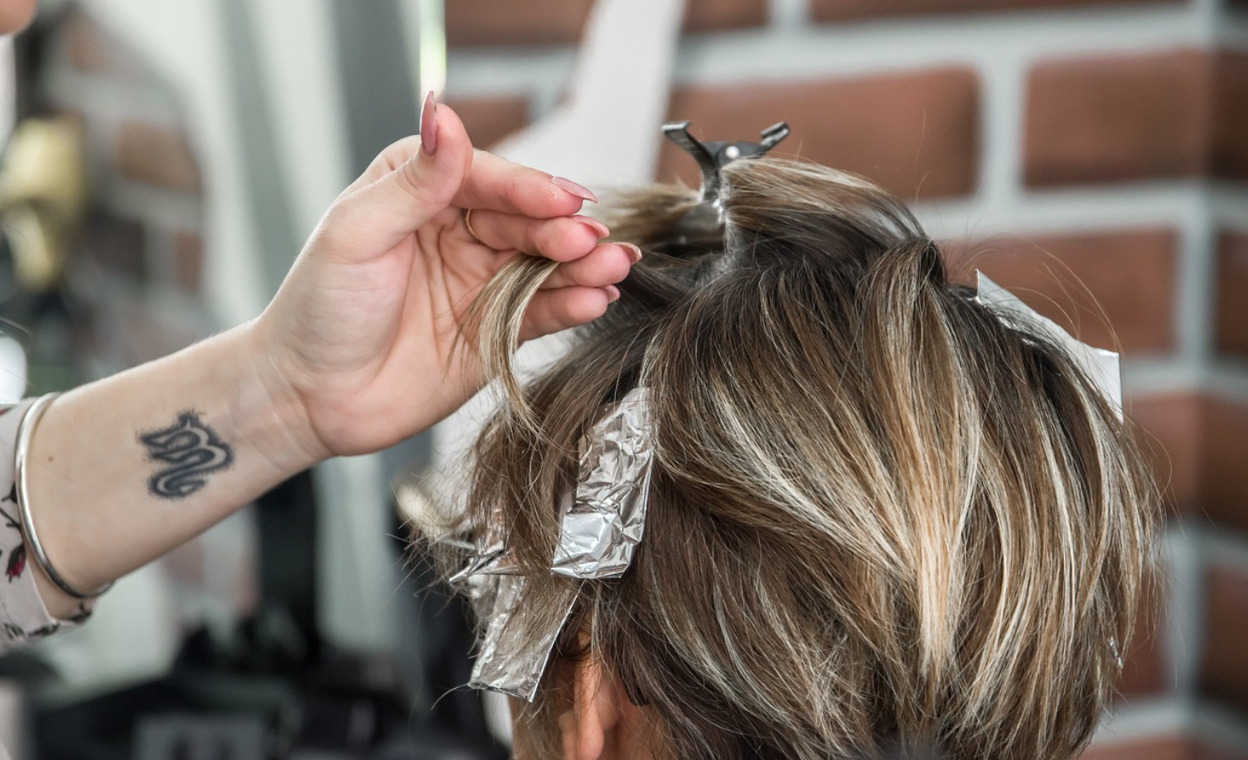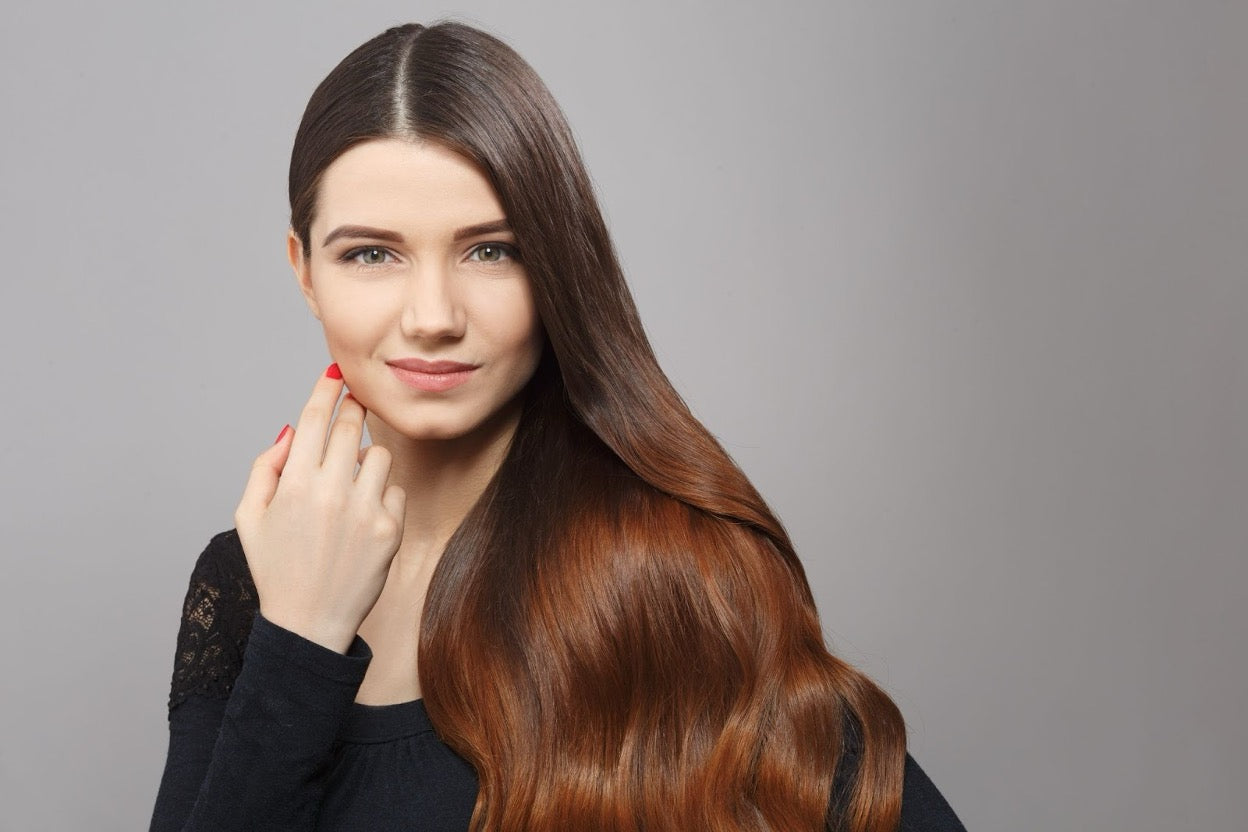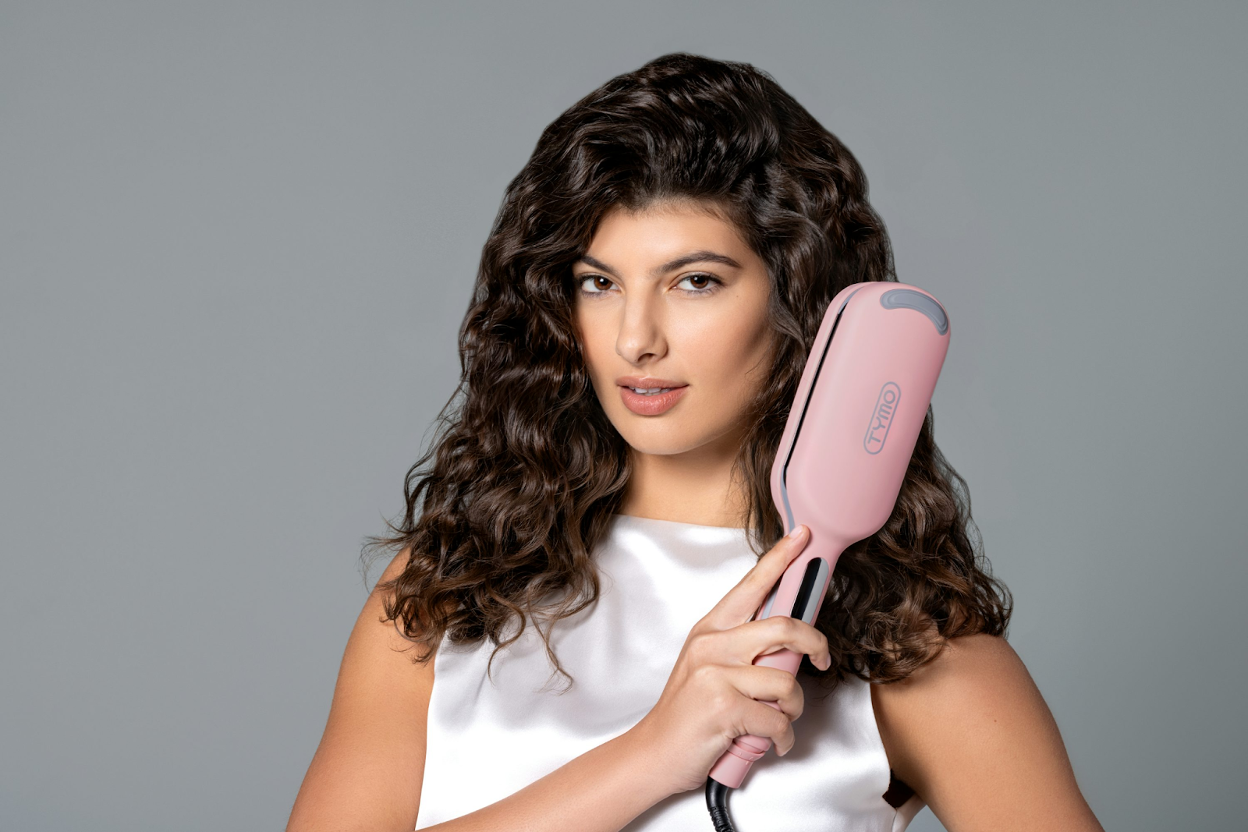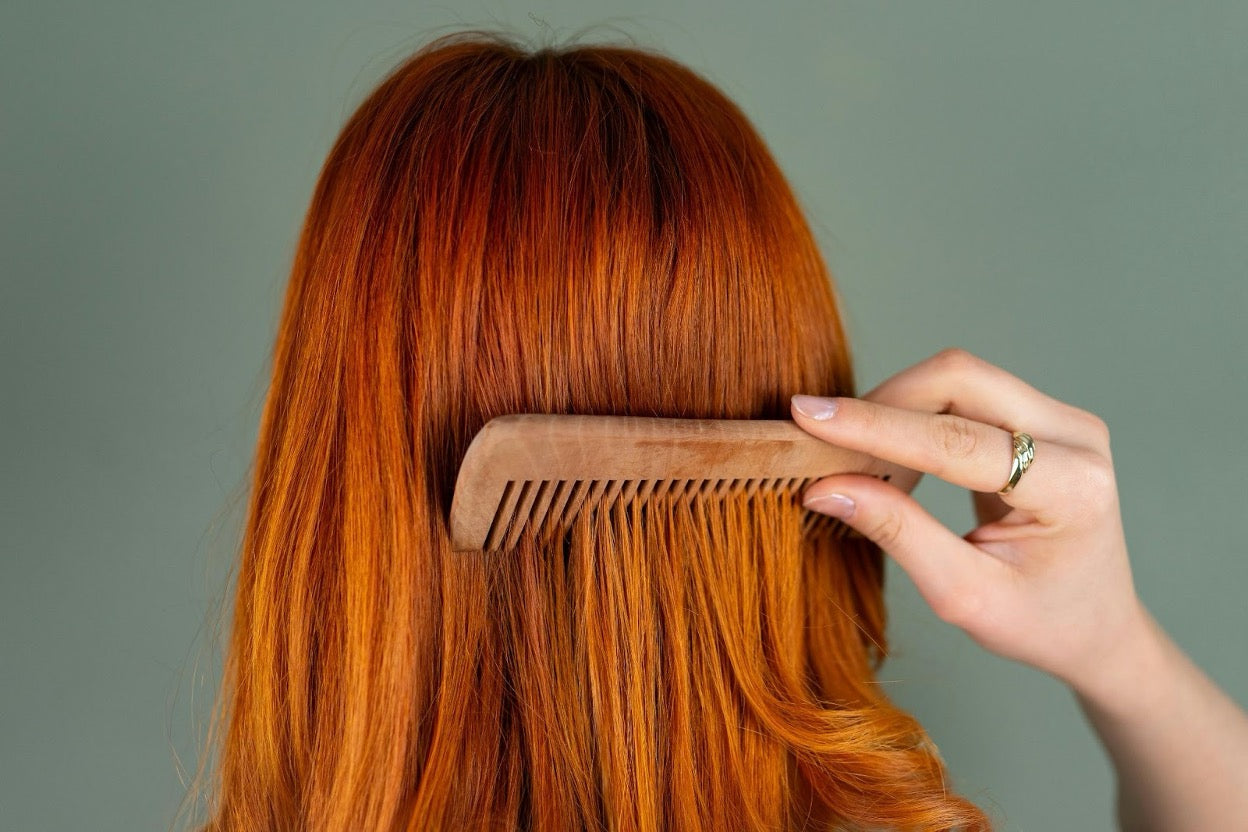Black Seed Oil vs Jojoba Oil for Hair Growth: Usage, Benefits & Side Effects
BY TRYBELLO
Nov 20, 2025

Key Takeaways
- Hair growth depends on follicle health, circulation, and nutrients; the right oil supports a balanced, growth-ready scalp.
- Black seed oil stimulates weak follicles, while jojoba balances scalp oils and prevents buildup.
- Inflammation, excess oil, and nutrient gaps can slow growth; black seed soothes and activates follicles, while jojoba keeps the scalp clear and hydrated.
- Black seed penetrates deeply for growth support; jojoba stays surface-level to regulate moisture and protect scalp balance.
- Trybello Hair Helper Spray with biotin, caffeine, and castor oil supports fuller-looking hair and reduced shedding; pairing it with oils can accelerate visible results.
Hair Growth Fundamentals: Why Your Oil Choice Matters
Hair growth relies on follicle health, circulation, and nutrient delivery. Oils influence these factors by nourishing follicles, balancing scalp conditions, and supporting the environment needed for strong growth. The right oil can enhance growth, while the wrong one may slow progress.
Black Seed vs Jojoba Oil
Black seed and jojoba oils support growth in different ways. Black seed oil stimulates follicles through biochemical activity that can awaken dormant strands and extend growth phases. Jojoba oil mimics natural sebum, balancing scalp oils and preventing buildup that can suffocate follicles.
Follicle Response
Black seed oil’s active compounds are especially beneficial for inflamed or weakened follicles, helping calm irritation and support recovery. Jojoba oil excels at maintaining already healthy follicles by creating an ideal moisture balance and protecting the scalp surface.
Common Growth Barriers
Thinning hair often stems from inflammation, poor circulation, excess sebum, or nutrient gaps. Black seed oil helps soothe inflammation and support follicle activity. Jojoba oil supports a clean, balanced scalp environment to keep follicles functioning well.
Absorption Differences
Black seed oil penetrates deeply into the scalp due to its molecular size, reaching follicles at the root level. Jojoba sits closer to the surface, regulating moisture and supporting the upper scalp layers. Scalp type, oil levels, and environment influence which oil works best for each person.
“Doctor-Approved Natural Spray Rapidly Boosts Growth & Thickness.
Why 100,000+ Women Are Switching to Trybello!"
Join over 100,000 happy customers who've transformed their hair with our doctor-formulated spray in just 12 weeks, rated 4.8/5 by 40,000+ real users.
Proven Natural Ingredients
- • Caffeine Extract – Blocks DHT and boosts blood flow to follicles
- • Biotin – Direct scalp absorption, no pills needed
- • Castor Oil – Soothes inflammation and locks in moisture
- • Rice Water Extract – Strengthens hair and reduces shedding
120-Day Growth Guarantee: No results? 100% money back, no questions asked.
Black Seed Oil: Nature's Hair Growth Stimulant
Black seed oil, sourced from Nigella sativa, is known for supporting hair density and reducing shedding. Its active compounds calm scalp irritation, promote circulation, and help awaken weak follicles. Consistent use may support reduced shedding within a few weeks, with fuller-looking growth developing gradually.
Active Compounds That Support Follicles
Thymoquinone, the key compound in black seed oil, helps defend follicles from oxidative stress and supports a balanced scalp environment. Essential fatty acids help strengthen the scalp barrier and prevent moisture loss, while plant-based sterols assist in maintaining a healthy follicle cycle. These elements work together to create conditions that support fuller, stronger-looking hair.
Research-Backed Benefits
Telogen effluvium causes premature hair shedding driven by inflammation. In a double-blind, placebo-controlled trial, daily use of a 0.5% Nigella sativa scalp lotion for three months led to increased hair density and thickness in most participants, along with reduced scalp inflammation. These findings suggest black seed oil may support hair affected by inflammation-related thinning.
How It Soothes and Stimulates
Black seed oil helps calm scalp discomfort and supports circulation, allowing follicles to receive nutrients more efficiently. This dual action helps create a healthy foundation for growth and reduces stress on the follicle environment.

Black seed oil works at the follicle level to reduce shedding and stimulate new growth.
Best Ways to Apply Black Seed Oil
Apply a few drops directly to a clean, slightly damp scalp and massage gently for several minutes to support absorption and circulation. For intensive nourishment, leave on overnight; for finer hair or oilier scalps, apply for a shorter period before washing. Aim for consistent use several times weekly to see a visible improvement in volume and reduced shedding over time.
Jojoba Oil: The Scalp Balancing Moisturizer
Jojoba oil is a liquid wax that closely mimics natural scalp oils, making it ideal for balancing moisture levels. It hydrates dry areas while helping regulate excess oil on greasy scalps, creating a healthier foundation for hair growth. Its exceptional stability also prevents oxidation, helping support a calm, healthy scalp environment.
Research-Backed Scalp Benefits
Research shows that jojoba oil helps reduce inflammation and supports skin health, which may benefit the scalp environment. This creates a healthier scalp environment, helping clear buildup and improve conditions for stronger, fuller hair growth.
How It Clears Buildup
Jojoba oil gently dissolves hardened sebum, dead skin, and product residue without stripping natural moisture. This keeps follicles clear, supports circulation, and helps maintain a clean, balanced scalp ecosystem.
Best Application Methods
Warm a small amount between your palms and massage it into the scalp using light circular motions. It works well as a pre-shampoo treatment applied 20–30 minutes before washing to lift buildup and balance moisture. Because it’s lightweight, jojoba can also be used more frequently between wash days. For added clarifying support, it may be paired with a small amount of tea tree oil.

Jojoba oil balances scalp moisture while gently clearing sebum buildup.
Side Effects and Safety Precautions You Must Know
Natural oils can support scalp health, but they may cause reactions in some individuals. Proper patch testing and gradual introduction help reduce risk.
Allergic Reactions and Patch Testing
Black seed oil’s active compounds may trigger itching or redness in sensitive users. Apply a small amount behind the ear or on the inner forearm for 48 hours before full use. If irritation occurs, discontinue.
Jojoba oil is generally well-tolerated but can cause reactions if the product is impure or oxidized. Select high-quality, cold-pressed options and start with limited use.
Who Should Avoid or Use Caution
Those who are pregnant, breastfeeding, or taking blood-thinning medication should consult a healthcare professional before using black seed oil. Individuals with psoriasis, severe seborrheic dermatitis, or those undergoing chemotherapy should seek medical guidance before applying oils to the scalp. Autoimmune-related hair loss may also require professional supervision.
When an Oil Isn’t Suitable
Stop use if you notice persistent itching, redness, increased shedding, bumps, or worsening flaking. Dull, brittle hair after application may also indicate the oil is not absorbing well or is unsuitable for your scalp type.
Direct Comparison: Which Oil Wins for Your Hair Type?
Both oils support hair and scalp health, but they excel in different areas. Black seed oil is best for targeting thinning and stimulating new growth thanks to its anti-inflammatory and circulation-boosting qualities. Jojoba oil focuses on scalp balance, moisture regulation, and protecting hair from breakage, making it ideal for maintaining a healthy growth environment.
Absorption and Texture
Black seed oil absorbs more slowly and has a richer texture, making it better suited for nighttime or longer treatments. It can feel heavy on fine or oily hair if used in excess. Jojoba oil absorbs quickly with a lightweight feel, rarely leaving residue, and works well for daytime use or frequent application across most hair types.
Best Uses by Concern
For hair loss and thinning, black seed oil is the stronger choice. When dealing with slow growth, black seed oil again provides more direct stimulation. Jojoba oil performs best for dry or brittle hair thanks to its deep moisturizing properties. For dandruff or buildup, using both oils together offers the most balanced approach. Black seed oil is more effective for managing scalp inflammation, while jojoba is the preferred option for oily scalp conditions.
Comparing Black Seed and Jojoba Oils for Hair Growth
| Category | Black Seed Oil | Jojoba Oil |
|---|---|---|
| Key Benefit | Supports thinning and shedding; helps stimulate follicles | Balances scalp oils; hydrates and protects scalp + strands |
| Primary Action | Calms inflammation, supports circulation, aids follicle activity | Mimics natural sebum, clears buildup, maintains moisture balance |
| Best For | Thinning hair, inflamed scalp, weak follicles | Dry, brittle hair, oily scalp imbalance, sensitive scalps |
| Absorption | Deeper penetration; richer texture | Lightweight, fast absorption |
| Ideal Usage | Overnight scalp treatment, applied several times weekly | Pre-shampoo treatment or light leave-in for moisture balance |
| Suitability | Stronger growth focus; use cautiously on sensitive skin | Generally gentle and well-tolerated |
| Precautions | Patch test; avoid in pregnancy/blood-thinning meds without advice | Use high-quality cold-pressed oil; monitor sensitivity |
Targeted Oil Recommendations by Hair Type
These tailored suggestions are based on real-world results and account for hair type, scalp condition, and sensitivity. The goal is to support growth, balance, and long-term scalp health with simple, effective routines.
Thinning Hair
For visible thinning, apply cold-pressed black seed oil to the scalp three nights per week. Massage for five minutes and leave overnight. This approach supports follicle health and reduces shedding over time. Most users begin noticing less fallout in several weeks, with denser growth appearing later.
Dry, Damaged Hair
Jojoba oil offers deep nourishment for brittle or over-processed strands. Apply to damp hair, focusing on mid-lengths and ends. For deeper repair, wrap hair in a warm towel for 30 minutes. Add a small amount to your conditioner or use a light leave-in spray daily to maintain hydration without heaviness.
Oily Scalp With Hair Loss
Mix black seed and jojoba oil in a 1:3 ratio and apply only to the scalp every other night. This supports growth while helping rebalance excess oil. Leave overnight and wash with a gentle, sulfate-free shampoo in the morning to prevent buildup.
Sensitive or Reactive Scalp
Start with pure jojoba oil twice weekly on a damp scalp. After a few weeks, introduce black seed oil slowly, increasing to a 1:5 ratio over time. Use light fingertip pressure and avoid brushes to prevent irritation. If needed, dilute further with aloe vera gel for added soothing and easier application.
Why Trybello’s Hair Helper Spray Deserves a Spot in Your Routine
Trybello Hair Helper Spray is formulated to support visibly thicker, fuller-looking hair using clean, evidence-backed ingredients. Powered by biotin, caffeine, and castor oil, it helps energize the scalp, reduce shedding, and support stronger strands from the root. Users commonly report improved texture, less breakage, and healthier-looking volume with consistent daily use, making it a practical choice for those dealing with stress-related thinning or early hair fall.

Biotin, caffeine, and castor oil in Trybello Hair Helper Spray help strengthen hair at the root.
This lightweight, non-greasy formula absorbs quickly and layers easily with other hair products, making it suitable for busy routines. It is vegan, cruelty-free, and free from harsh chemicals, making it a gentle option for regular scalp care. The brand also has a 120-day results guarantee, providing confidence to try it long enough to see meaningful improvement.
For faster visible results, pairing Trybello Hair Helper Spray with nourishing hair oils can amplify scalp support and overall hair strength. The spray helps stimulate and energize the scalp, while oils provide nourishment and protection, creating a combined routine that supports healthy-looking growth from multiple angles.
Frequently Asked Questions (FAQs)
Trending Topics
See our latests posts #TRYBELLO












